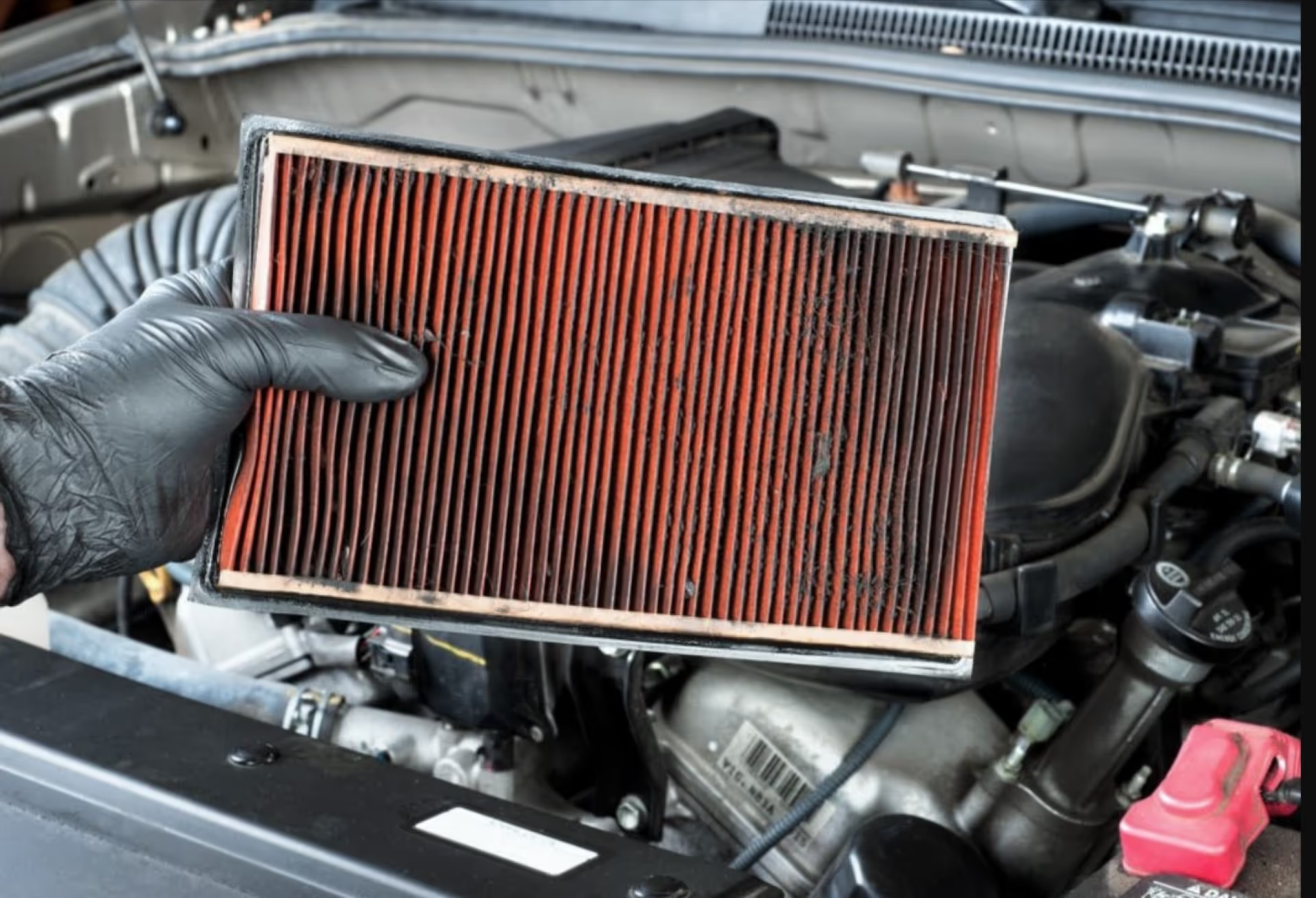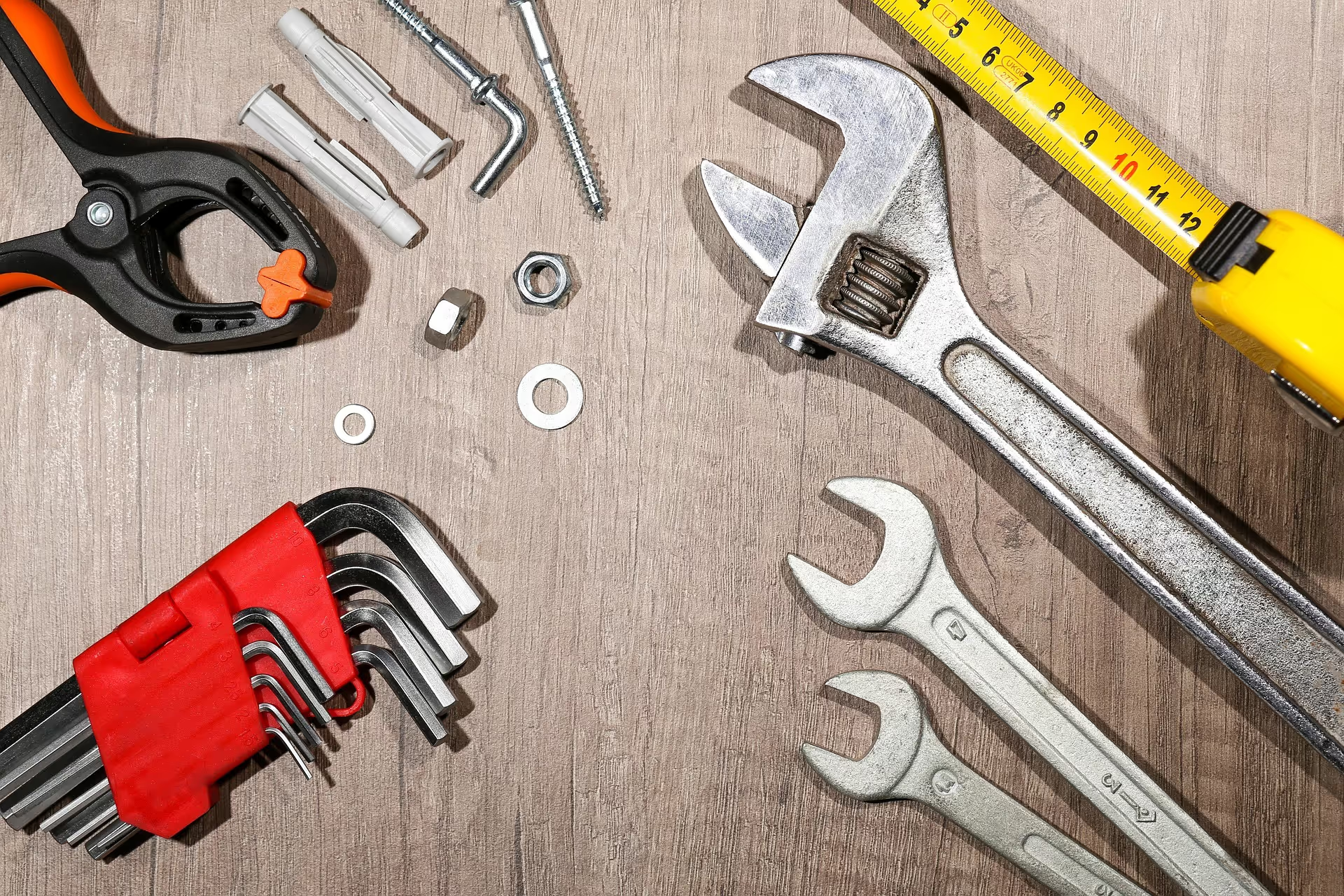
Your truck's engine has air filters at its entrance. They work like lungs, filtering dust and dirt from the air, preventing them from reaching the internal combustion chamber and damaging essential parts of your big rig's engine. This ensures the motor works effectively.
Over time, air filters accumulate dust and other substances, which can clog them and reduce the amount of air entering the combustion chamber, thus impacting your diesel engine's performance.
How can you tell if your engine's air filters are dirty and need cleaning or replacement? In this article, we have discussed some signs of a dirty engine air filter in your big rig and how to fix them to ensure your engine works well and your truck is in good condition.
Let's dive right in
Types of Engine Air Filters in Heavy-Duty Trucks
Since trucks serve various roles across different environments, they come equipped with air filters tailored to their specific operational needs.
Therefore, heavy-duty trucks might use either dry or wet air filters.
1. Dry engine air filters
The dry air filter consists of heavy-layered, low-micron cloth fiber or a layer of paper media combined with polyurethane seals.
These air filters remove dust and small particles from the air, helping to protect the cylinder walls and piston from damage and ensure their proper operation.
2. Wet engine air filters
Wet air filters utilize oil or foam to trap dust, tiny particles, and contaminants as the air passes through the engine’s combustion chamber.
The oil-coated filter is made from layers of cotton filter or high-flow synthetic media surrounded by stainless steel wire to make them firm. Couplers, silicone seals, and end caps are added to complete the construction and make the filter seals airtight.
Finally, a layer of oil is applied to the filter media, acting as glue to capture fine particles in the air that may slip through the sponge pores to the combustion chamber.
This wet air filter is used in trucks that operate in dusty conditions, such as construction sites, arid and semi-arid areas, and rough roads.
9 Signs Your Engine Air Filter Is Dirty and Needs Cleaning or Replacement
Since engine air filters trap dust and tiny air particles, the dust builds up, clogging them over time. This reduces their ability to filter air and the amount of air passing through them.
You should inspect and assess the condition of your air filters to see if they are dirty, clean them, or replace them to protect and maintain your engine's performance.
Here are signs that your engine air filters are dirt and need cleaning or replacement.
1. Your Engine is Missing or Misfiring
Dirty or clogged air filters interfere with air circulation in the engine’s combustion chamber, leading to incomplete combustion. The soot released from poorly burned fuel accumulates at the tips of the spark ignition plugs.
Continuous soot accumulation will cover the sensitive parts of the spark ignition engine and prevent them from firing correctly.
For this reason, your semi-truck engine will misfire, making your truck tremble when idling, shut off, or fail to turn on.
2. Check Engine Light Turns On
The check engine light will turn on once your truck detects a problem related to your engine. Dirty and blocked engine air filters will lower the amount of fresh air entering the combustion chamber, reducing the ratio of air to fuel and leading to incomplete combustion.
This can lead to poor engine performance, which triggers the check engine light to turn on.
If you need help determining why the light is on, contact the nearest truck repair shop or mobile mechanic for assistance.
3. Dark Smoke or Fire Coming From the Exhaust Pipe
Dirty or clogged air filters limit the levels of fresh air entering the engine’s combustion chamber, resulting in an imbalance in the air-fuel mixture.
Some fuel will fail to burn and escape with the exhaust emissions with a popping sound. Moreover, you may notice fire coming from the exhaust pipe as the super-heated fuel leaves the system. These fuel leaks and emissions will pollute the environment, and you will use more fuel than usual.
On the other hand, you may also notice dark and heavy smoke escaping from the exhaust system. The smoke results from soot formed in the combustion chamber due to a poor air-fuel mixture, leading to incomplete combustion that produces soot.
The dark smoke may sometimes result from a poor fuel injector or dysfunctional oxygen sensors.
4. Visible Brown or Dark Debris on the Air Filter System
When doing routine maintenance on your vehicle, air filter inspection must be one of the items on your checklist.
If you notice that your air filters have turned dark or brown and are full of dirt or soot, this means your truck has a dirty engine air filter.
5. Reduced Acceleration
When you press the gas pedal and expect your truck to accelerate, but it feels sluggish and reacts unusually, it could be a sign that the engine is not getting enough oxygen.
Insufficient oxygen in the internal combustion chamber can lead to an unbalanced air-fuel ratio, causing incomplete combustion. Incomplete combustion will lead to power loss, and you will experience abnormal acceleration.
6. Unusual Noises Originating from the Engine
When your truck is idling, and the engine is running, you should hear a smooth hum if there is sufficient oxygen supply to the combustion chamber.
If the air filters are clogged and oxygen entering the combustion chamber is limited, you may experience rattling or hiccup sounds from the engine when accelerating and popping sounds from the exhaust system. These sounds are sometimes inconsistent.
This is a sign that your truck air filters are clogged and a poor air-fuel mixture exists.
7. Decreased Fuel Economy
Clogged air filters will reduce the air volume entering the combustion chamber, leading to an imbalance in the air-fuel mixture. Some fuel will fail to burn and escape through the exhaust system, wasting it.
Additionally, your semi-truck engine is likely to consume more fuel than usual to produce the same power output when accelerating, increasing the amount of fuel consumption when covering a certain distance.
8. Failure to Start the Engine
When you apply the brakes and start your truck's ignition system, fuel is injected into the internal combustion engine. At the same time, the air is supposed to enter through the air filters, and the spark plugs should generate sparks responsible for igniting the diesel, converting it into mechanical energy that powers your vehicle.
Clogged air filters will reduce the air intake, resulting in an improper compression ratio of the air-fuel mixture.
Over time, soot will completely cover the tips of the plugins. During ignition, they may produce tiny sparks or none. Therefore, fuel will fail to burn, and the engine will lack the mechanical energy to power your truck, so it will fail to turn on.
9. A strong smell of Gasoline
Dirty air filters will lead to an inadequate air supply to your truck's internal combustion chambers. When there is a low air-to-fuel ratio in your truck’s engine combustion chamber, some fuel may fail to burn and escape through the exhaust pipes.
You will experience a strong gas smell, a sign that your air filters are clogged and unable to allow in the level of oxygen needed to complete the combustion process.
How to Diagnose Your Truck for Dirty or Clogged Air Filters
When the check engine light turns on, it may be hard to tell the exact problem affecting your truck’s engine performance. Your truck mechanic will use the OBD-II scanner to diagnose the vehicle. Related codes will be displayed on the scanner screen if the issue concerns dirty air filters.
The air filters are underneath the hood and in front of the engine compartment. You can inspect them to see their state. Clean air filters are usually white or pale white, while washable ones have plum-colored media.
If your air filter is dirty, you will observe some dust and debris covering it. The presence of brown or black substances indicates that your truck’s air filters are dirty and must be cleaned or replaced.
How to Fix Clogged or Dirty Engine Air Filters in Your Semi-Truck
Once you realize your air filters are dirty, you can replace or wash them if they are washable.
As a fleet manager or truck owner, you can train your truck drivers to replace or clean the air filters once they realize they are dirty to maximize the engine’s power output.
Conclusion
Air filters are essential aspects of your truck as they aid in the adequate performance of the engine.
Always look for signs of dirty air filters and replace or clean them to ensure airflow to the combustion chamber is not limited, keep your engine in good condition, ensure it is up to its functions, and ensure the longevity of your truck.
If you need help replacing your air filter, our experienced Truck Up mobile mechanics will visit you whether you are on the roadside, at home, or in commercial parking and offer you the help you need.
Frequently Asked Questions (FAQs)
1. How Can I Know if My Engine Air Filter is Clogged?
Your heavy-duty truck's engine air filters may be dirty or clogged if you notice the following signs: increased fuel consumption, check engine light turning on, more dark smoke coming from the exhaust pipes (sometimes with fire), loss of engine power and misfiring, sluggish acceleration, smell of gasoline while driving, engine failure to start, excessive vibrations and strange sounds, and finally, dark or brown substances visible on the air filters during inspection.
2. Can a Clogged Air Filter Ruin My Engine?
Yes. A dirty air filter will limit the amount of oxygen entering the combustion chamber, leading to an imbalance in the air-fuel mixture. This will make the engine overwork to produce sufficient power to run various parts of your truck. The engine will overheat, wear out, or damage essential components like spark plugs, oxygen sensors, and catalytic converters.
3. Can I Drive With a Dirty Air Filter?
You can drive your truck with a dirty air filter, but you will likely expose your vehicle to many problems, leading to costly repairs. Dirty air filters block air from entering the engine, making it work hard and lowering its performance. Additionally, you will likely spend more on fuel as your vehicle will consume more than usual.
“Being a mobile mechanic allows me to earn significantly more than I would in a traditional garage setting. The convenience I provide to customers, coupled with the lower overhead costs, means I can charge a premium for my services and keep a larger share of my earnings.”







